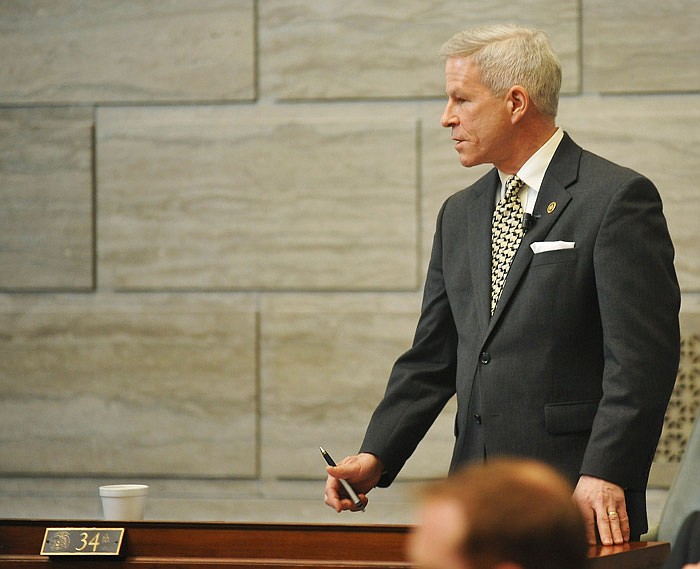Since the Missouri State Employees Retirement System - MOSERS - lowered its expected rate-of-return on investments earlier this year, the state's contribution rate to the system will likely go up, lawmakers were told Monday.
"Similar to what we saw in the Judicial Retirement System," Michael Ruff, executive director of the Legislature's Joint Committee on Public Employee Retirement said, "we can expect to see the contribution rate increase, (the) accrued liabilities go up and the funded ratios decrease."
Sen. Rob Schaaf, R-St. Joseph and chairman of the joint committee, asked Ruff if that means "the General Assembly is looking like it will have to set-aside $445 million this coming year" for the state's share of MOSERS funding.
Schaaf calculates that amount as about a $65 million increase over state government's current contribution.
"That means that whatever increase in revenue that (the state has) next year, $65 million has to come right off the top to fund our retirees," he told the News Tribune after Monday's meeting.
"That's a lot of cash."
Even with some predicted growth in revenues, "the budget's going to be tight."
Still, Schaaf said, overall, Missouri's various public employee retirement systems "are stable," based on actuarial predictions.
Rep. Nate Walker, R-Kirksville, agreed.
"I think we need to, always, be concerned," he explained. "But, I think in most ways, the Missouri state retirement systems are in pretty good shape.
"The Joint Committee on Employee Retirement (gets) to look at a chance to look at those retirement funds that are in trouble, and then we try to work to make sure that something positive happens."
Neither Schaaf nor Walker will be in the Legislature to deal with the issue, though.
Monday's meeting was one of their last acts as a lawmaker, since term limits prevented Schaaf from running for another term, and Walker lost an August Primary contest to be state senator from northeast Missouri.
"We certainly do not want to get into the position of some of the other states around us - like Illinois," Walker said, "where our main retirement systems are busted.
"(But) I have good faith that the citizens of the state of Missouri - with the General Assembly, the governor and the executive branch - will do that" work to keep the various pension plans viable.
Lawmakers in 1983 created the Joint Committee to monitor the work and financial stability of the various pension funds that provide retirement benefits to state and local government employees.
"It's important that we have some oversight on this," Walker said, "and, hopefully, our system will keep working right."
Schaaf said, "The question is, what's going to happen to the world economy and the market? We're in unknown territory on a worldwide basis.
"There's a debt bubble that's never occurred (before) in human history - so, nobody really knows."
Some economists have predicted the world economy will see what's called "hyper-inflation" - where the prices of goods and services skyrocket in nearly all areas - and Schaaf is concerned.
"The pensions would be OK," Schaaf said. "It's just that the value of the pensions that the retirees get won't be worth much," similar to what people experienced during the 1930's Great Depression.
Even the public funds on the committee's "Watch List" - those with problems paying the full value of their pension programs over a few months or a number of years - are taking steps to improve their conditions, Schaaf said.
"I think that's been effective in making the plans more solvent," he said. "But you notice that it comes at a cost."

